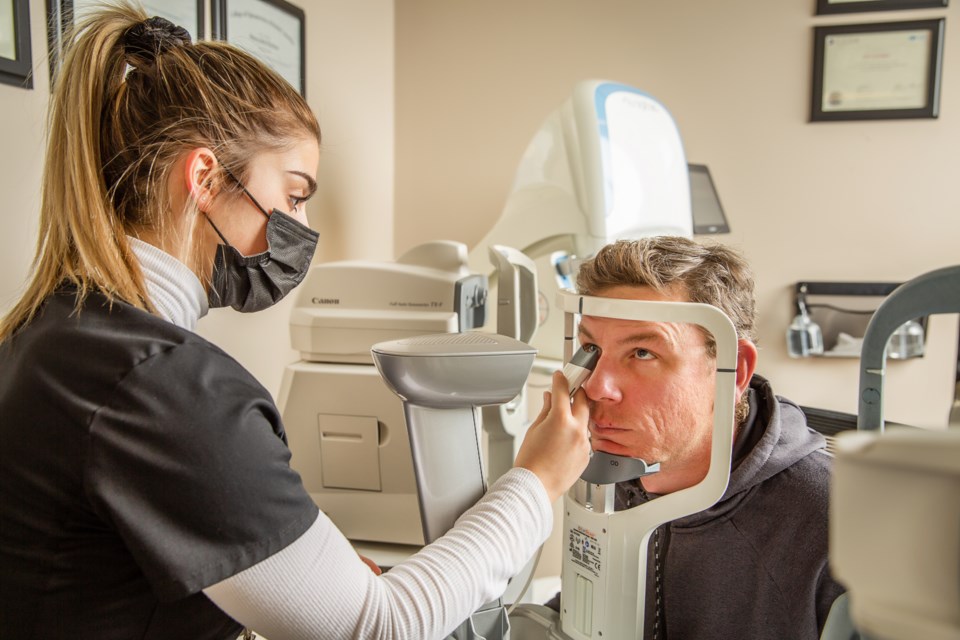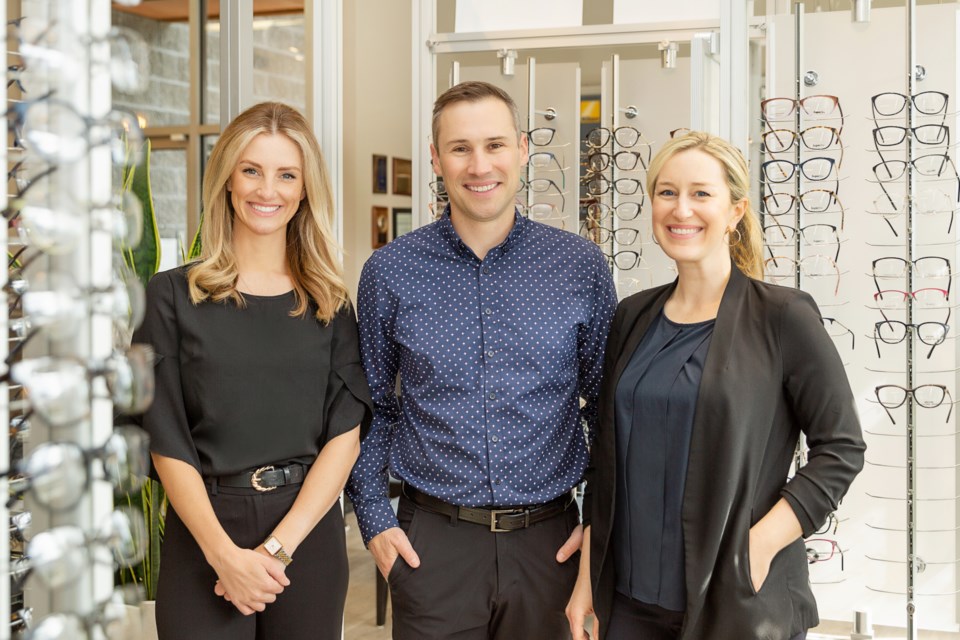Screen time has become a bigger part of everyone's lives, especially during the height of the pandemic, when remote learning and work-from-home directives were at an all-time high. Not to mention the ever-growing popularity of streaming programs that are watched on a variety of devices.
Because of the dramatic rise in screen time, as well as the fact that more screens are now hand-held, our eyes are focusing more up close. This can lead to an increased risk of myopia, or nearsightedness, in children.
Half the world’s population is estimated to be myopic by 2050, which is alarming to eye doctors as well as the World Health Organization (WHO), because high myopia increases the risk of sight-threatening diseases such as glaucoma and retinal detachment. Higher prescription equals higher risk.
"Early detection is especially relevant for children as we have an opportunity to impact their eye development as they grow,” says optometrist, Dr. Sydney Davidson. “Our goal as eye doctors has shifted from providing clear vision with glasses or contacts to controlling the myopic progression and protecting the health of children's eyes.”
This can be done through various methods including Orthokeratology (overnight retainer lenses), myopia control lenses, lifestyle adjustments and pharmaceutical eye drops.
is a seven-doctor optometry and ophthalmology family practice, which has been providing eye care to 撸奶社区families for over 50 years.
"At Optomeyes, all of our optometrists are certified in the design and fit of specialty Orthokeratology lenses, which is one of the most effective ways of slowing the progression of myopia,” says Davidson. “This has the added benefit of 20/20 vision without the need to wear glasses or contacts during the day."
Dry eye

Looking at digital screens can decrease a person’s blink rate by 66 percent. "Blinking is important to keep the cornea lubricated, remove debris, and bring nutrients, minerals and oils to the surface of the eye," explains optometrist, Dr. Clark Bowden, whose breadth of practice includes a concentration on Dry Eye.
"Much research has been focusing on the meibomian glands, and studies show that increased screen time, even in children, is associated with damage to these glands, resulting in dry eye disease. We’ve recently invested in high-definition Meibomian Gland Imaging Technology so we can screen patients for damage before symptoms arise."
For people who are experiencing symptoms of dry eye, such as burning, grittiness, or discomfort, or spend many hours in front of a computer each day, it’s worth finding out if there’s an underlying issue developing.
Fortunately, there are therapies to alleviate symptoms and prevent further long-term harm, including two of the most effective dry eye treatments, the Lipiflow thermal pulsation device and Radio Frequency (RF), both of which are offered by Optomeyes.
Digital eye strain

Digital eye strain (computer vision syndrome) results from prolonged periods of screen time, and often manifests as soreness, blurry vision, difficulty focusing and/or headaches.
"This happens because your eyes are focusing on a single distance for hours at a time and the muscles in your eyes must remain engaged without rest," says Bowden. "It's similar to holding your arms straight up in the air—you probably won’t feel uncomfortable right away, but after a while, your arm muscles would fatigue and become sore."
There's also the contribution of blue light, which increases eye strain and disrupts melatonin release, which can affect sleep.
"We often prescribe anti-fatigue lenses which are specifically designed to allow the eye muscles to relax while on digital devices, as well as block the blue light they emit," explains Bowden.
"The world and the way we use our eyes has changed dramatically over the past decade," says Bowden. "We want to educate our community on the effects of screen time, but also let them know that early detection is important, and there have been big leaps in technology to assess harm and interventions to reduce it."
"We’re passionate about preventative eye care. It can have such a huge impact on our patients and their families," says Davidson.
It’s recommended that people who are using screens for the majority of their workday have their eyes examined. Children 18 and under are fully covered by MSP.
For more information or to schedule an exam, visit or call 604-229-8514.




